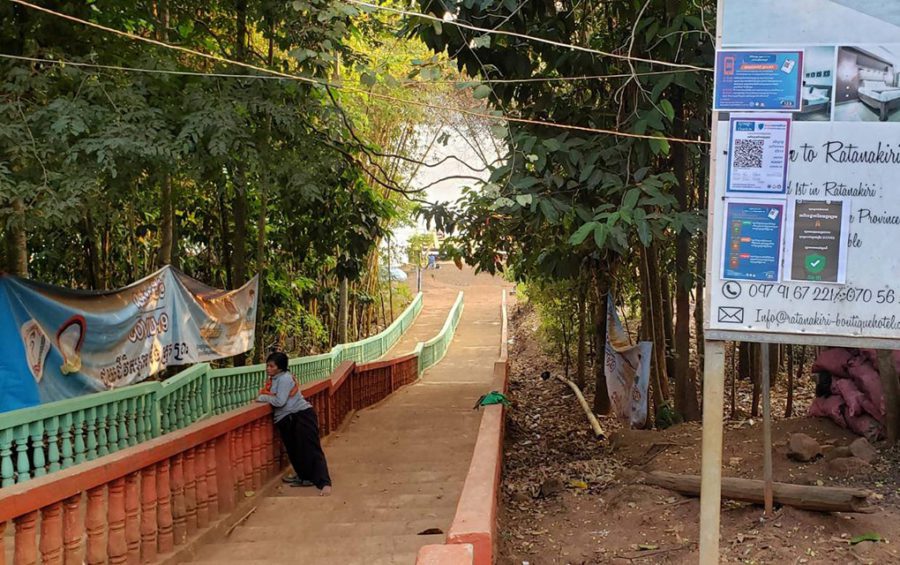Ratanakiri authorities say they are running out of rapid tests as they track the remote province’s first major Covid-19 outbreak, imposing a curfew across the province after more than 100 cases were found in one day.
The center of the outbreak is provincial capital Banlung city’s market, where a couple likely had Covid-19 for a week at their stall before they were discovered to have the disease, said deputy provincial governor Nhem Sam Oeun on Monday.
“We didn’t know that they were infected with Covid-19. That makes the situation worse. They walked around the town and market. And people who came to the market were also infected,” he said. The outbreak had already spread outside the provincial capital to nearby districts, he said.
“We are concerned,” Sam Oeun said. “People were in contact with each other so it might make the situation worse if we are careless.”
He added that the province was at its capacity for rapid Covid-19 testing, and would send more samples to laboratories elsewhere.
“The rapid tests are not enough for us,” he said. “We need to limit the people getting the Covid-19 test.”
The province had imposed a curfew from 8 p.m. to 5 a.m. starting Monday and lasting through at least July 4, he said. “But for tourists, it remains the same and they can come normally,” Sam Oeun added.
The provincial administration announced 104 new cases on Saturday, and a further 22 cases on Monday. The province had seen just 36 previous cases in total since the start of the pandemic.
O’Chum district, near Banlung city, found four cases and had traced 14 families who were in indirect contact across three communes, said district chief Thuk Khuer.
“We are concerned about this outbreak, but people here live far away [from one another]; some live on their farms,” Khuer said, anticipating the spread would be slower.
An office worker at a microfinance company in Bakeo district, Sev Vanly, said there were no cases in his village yet but he was feeling nervous.
“I’m so worried about this situation but I still need to go to work,” he said. “Some of us are working from home, but I need to go to the office to prepare documents.”
Even before the latest outbreak, some indigenous villagers in Ratanakiri have been taking extra precautions against Covid-19.
Saraen Eleam, a 24-year-old ethnic Kreung resident of O’Chum district, said her village had earlier held a ceremony for five days and five nights to pray to ancestral forest spirits to protect them from Covid-19.
For the first three days, no one was allowed to even walk outside their homes, she said. At the end of the ceremony, they roasted whole pigs and celebrated in prayer, she said.
“This is a tradition [we do] every five or six years, but we celebrated as we are in the Covid pandemic,” she said. “We believe it will keep us safe from any disease.”
Ratanakiri, in the country’s remote northeast, has two main entry points from Mondulkiri and Stung Treng. All arrivals must have their temperatures checked and answer questions about whether they have come from Covid-19 hotspots, the deputy governor, Sam Oeun, said last week.













